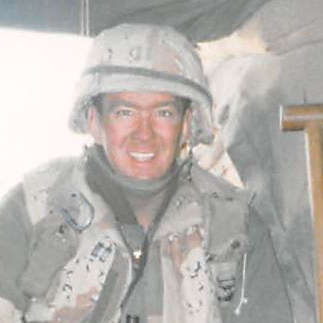
Michael Hicks
Columnist at Freelance
Father of 3 marvels. Lucky husband. Parent lottery winner. Ret’d infantryman. George & Frances Ball Dist. Prof. of Econ, VMI '84, UT ‘98, personal account.
Articles
-
1 week ago |
pressrepublican.com | Michael Hicks
The most disruptive technology in human history was almost certainly the wheel. That economic shock, and all the others that followed, give us useful insight into labor market effects of artificial intelligence. The invention of the wheel cut transportation costs by 80% or 90%, dramatically reducing demand for workers who carried goods across and between towns. We’ve had other technology shocks — the use of fossil fuels, steam and then electric power, the internal combustion engine and computers.
-
1 week ago |
inkl.com | Michael Hicks
A selfie of the author wearing XREAL Air 2 AR glasses tethered to a Steam Deck held in his left hand next to his face. AC thVRsday is a weekly column that delves into all things VR, from new hardware to new games, upcoming technologies, and so much more. Typically helmed by Android Central Senior Editor Nicholas Sutrich, this week's entry is a guest post from Michael Hicks, another Android Central Senior Editor who regularly covers all things XR.
-
1 week ago |
flipboard.com | Michael Hicks
1 hour agoAnt Group pushes wider adoption of AI-enabled smart glasses for mobile paymentsChinese fintech giant Ant Group is pushing the wider adoption of smart glasses to facilitate digital transactions, extending the reach of mobile …5 hours agoCheers to the beers: 2 Kelowna breweries bring home barley awardsTwo Kelowna breweries can clink their glasses in celebration after taking home awards from the Canadian Brewing Awards. For Grey Fox Brewing, it is …
-
1 week ago |
znetwork.org | Michael Hicks |Eric Meier
This is a recording of our online event with Michael Hicks on his Game “Dissent on Mars” and simulating postcapitalist economies, which was held on the 6th of June 2025. Find a description of the event below: “Dissent on Mars is a new simulation game that lets players design dozens of different economies to live in, including a democratically planned economy.
-
1 week ago |
indystar.com | Michael Hicks
The Trump administration is failing. DOGE’s budget-cutting efforts appear to have cost taxpayers more than they saved, the expulsion rate of illegal immigrants trails Biden-era rates and we are in a trade war that will force an embarrassing national retreat – but only after damaging our economy. Internationally, we have more fractured alliances today than at any time in the last century.
Try JournoFinder For Free
Search and contact over 1M+ journalist profiles, browse 100M+ articles, and unlock powerful PR tools.
Start Your 7-Day Free Trial →X (formerly Twitter)
- Followers
- 4K
- Tweets
- 45K
- DMs Open
- Yes